SEO isn’t about making your business visible anymore — it has naturally evolved into a profitable business itself. Guess, it was bound to happen! Say you own a high-performing website everyone wants to link to, why not cash in by SELLING links?
The whole concept has blown up so much these days, that only the lazy aren’t figuring out how to sell backlinks. Everyone else, from shady individuals on Fiverr to full-scale marketplaces, seems to sell backlinks like there’s no tomorrow.
And here’s why:
💰 It's INSANELY profitable!
Backlinks are still solid gold for higher rankings. Since good ones are scarce, the laws of the market kick in: when demand outstrips supply, prices shoot up. If you CAN cater those high-quality backlinks, you’re likely to monetize big!
😵 Google's got everyone, including itself, CONFUSED.
Even though Google forbids buying links for ranking purposes and threatens with penalties, there’s a loophole for those looking to sell backlinks. Many simply turn to Google’s “sponsored content,” which is just a fancy way of saying “selling links,” and that’s how the business keeps thriving.
The SEO community has been having a good laugh about it lately in Peter Rota's comment section on LinkedIn.
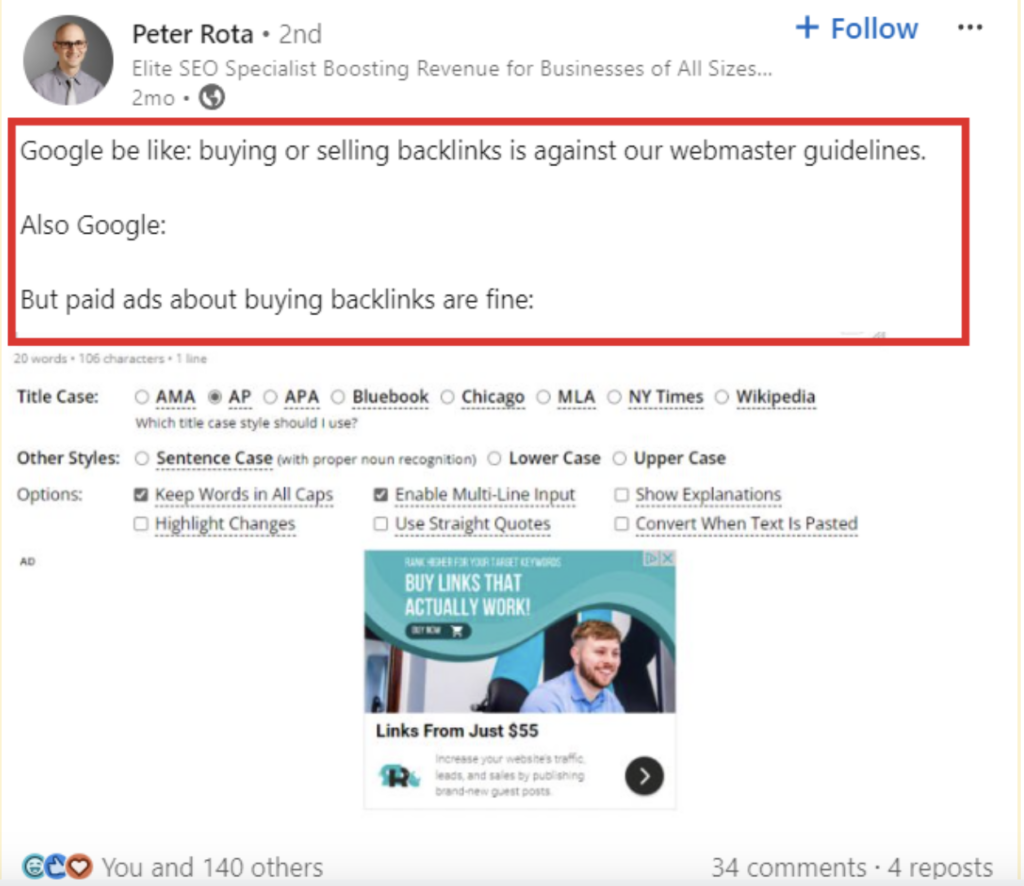
Anyway, jokes aside, selling links is more than doable no matter what Google actually says. In this post, we’ll break down how to sell backlinks the right way, look at potential earnings, and, of course, cover the risks of doing it wrong.
Selling Backlinks: How Much You Can Earn?
Before we get into details, let’s just hint another time how Google is low-key rooting for those who sell backlinks.
You’ll get everything fast enough, simply check out the public income reports of some websites: they OFFICIALLY declare they’re earning thousands of dollars monthly selling links. Not to mention bloggers! Their income reports also boast crazy cash from selling so-called “sponsored” posts!
Need more concrete numbers? Well, let’s look at the fresh 2024 report by Detailed. It turns out that a big chunk of the SEO market’s expected $122 billion revenue by 2028 comes from companies that, alongside other services, actively sell backlinks.
For example, according to Detailed estimates based on public information, the Hoth digital marketing agency raked in $26.5 million in annual revenue back in 2023. Given that Hoth specializes in link-building, it’s clear that a substantial portion of that money comes from selling links. And that’s just wow!
As per investigation by Pat Wall on the annual revenues of link-building services, estimates range from $96K to $1.14 million — and these aren’t even the market leaders, just the averages!
Alright, that was all about estimated annual revenues. But what if we looked at the current rates for selling links?
Here we can trust Vince Nero’s 2025 research, where he analyzed thousands of guest posts and link insertion offers to determine the average prices for backlinks. This is what he revealed:
- The average price for a guest post is around $220.
- On average link insertions are sold for about $141.
Considering hundreds or even thousands of offers sliding into your LinkedIn DMs or inbox throughout the year, it’s plain to see that your earnings will keep you pleasantly shocked!
💡Pro-tip! Here at Editorial.Link, we’re not used to slacking off, hence we’ve crunched our own numbers! According to our info, the average price for a link package from a reputable link-building agency can range from $4K to $5K.
Considering that, in the worst-case scenario, an agency might have 20-30 clients, the monthly revenue could be around $100K to $150K. Just think how those numbers would multiply if the clientele grows! Sure, you could argue that this isn’t the exact net profit, but still — there’s a huge profit potential!
Looking for a service catering 100% high-quality links from authoritative sites like podium.com, monday.com, namecheap.com, and more? Hit up Editorial.Link and make the most of relationship-based link-building with industry pros!
How To Sell Backlinks Safely?
First off, let’s clear up what’s off-limits with Google. Their guidelines state that selling links that pass PageRank is a big no-no. Which means you CAN sell links per se, but only on the condition they don´t pass PageRank.
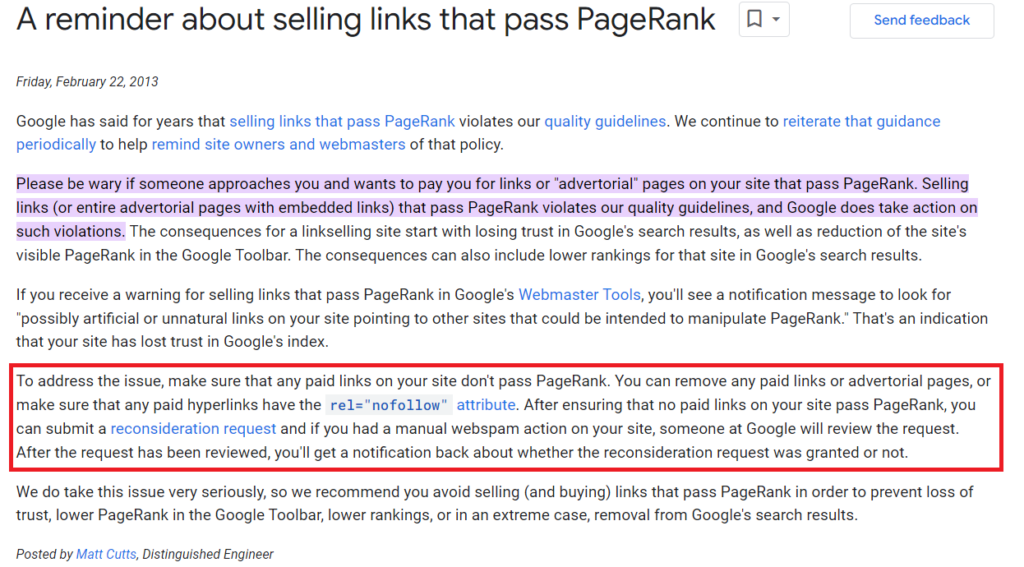
To play it safe, Google recommends marking all paid links as “nofollow” (using the rel=”nofollow” attribute). This way, search engines know these links don’t pass any PageRank.
💡Pro-tip! Don’t let the no-follow tag discourage you! An Ahrefs study found that there’s a connection between rankings and various link attributes. Google DOES take nofollow backlinks from high-authority sites into account, but they are simply not as impactful as dofollow links.
Another option we talked about earlier is to use Google’s 2019 introduction of the rel=”sponsored” attribute for paid links. This is simply a newer way to label ads and paid placements, ensuring they don’t pass any PageRank.
💡Pro-tip! Basically, there’s no real difference between rel=“nofollow” and rel=“sponsored” — both tags mark paid links showing Google you’re playing by the rules. The only slight difference is that rel=“sponsored” is a bit more focused on ads, while rel=“nofollow” can cover all types of paid links.
Ways to sell backlinks
Now that we know how to keep things safe, let’s check out some common ways websites sell backlinks.
Monetize sponsored content
The concept behind sponsored content is pretty straightforward: companies pay to feature their content on high-authority sites with a backlink to their own. It’s a win-win — high-quality content benefits both the advertiser and content consumers.
Take a reputable media hub like Door Media, for instance. They own another powerful site Search Engine Land, which is super respected in the SEO world. So how do they make money from it? Easy — they sell sponsored posts on Search Engine Land, raking in big bucks every year just because everyone wants a link from such a top-notch site!
🧐 Did you know? In October 2024, Semrush acquired both Third Door Media and its subsidiary Search Engine Land! The idea behind is to turn Semrush into a one-stop shop for digital marketers. Moneywise? Well, obviously more sponsored content and cash flow for Semrush from the newly-purchased platforms.
Sell to established partners
The rules of sales never seem to change when it comes to selling to existing customers. Since you’ve already done business together and built trust, those repeat purchases will come naturally because of that strong relationship.
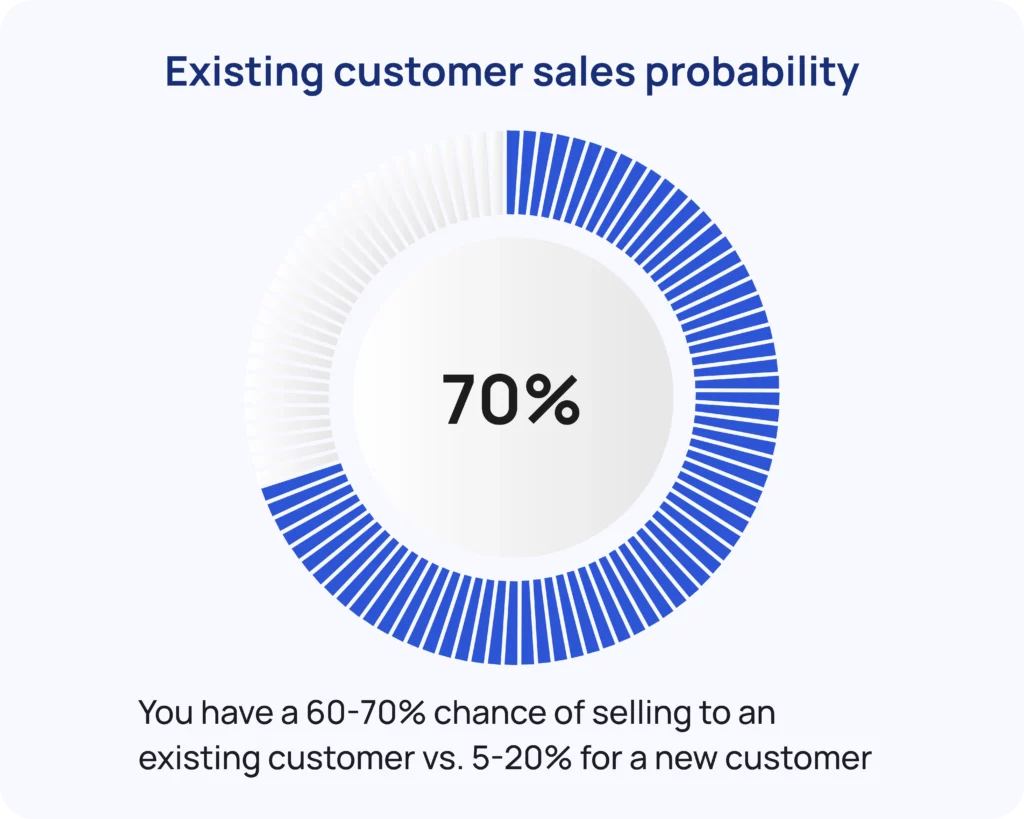
This totally applies to selling links as well! Many websites profit by regularly catering links to their trusted partners and established relationships. More often than not, entire sections of reputable websites are sold for gambling content!
Take a look at Metro.co.uk or Independent.co.uk — both are huge media outlets covering everything from serious political issues to celebrity gossip. And what do we see here? Seems like both sell a good chunk of their website space for casino links.
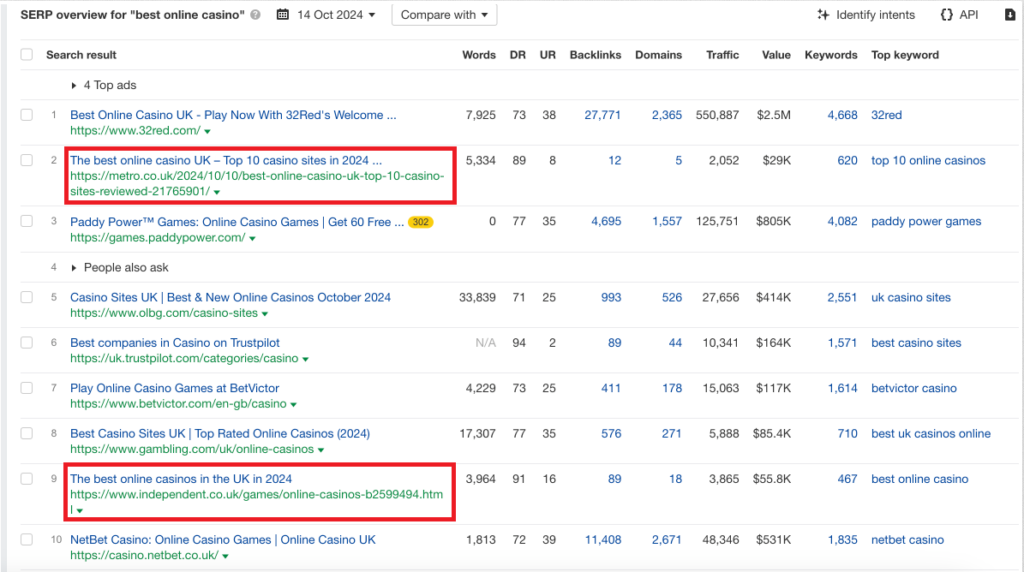
So, why does this work for both news websites and casinos? Well, permanent links in articles like “Best Online Casinos” on authoritative sites can cost casino owners up to a hundred thousand dollars a year! News websites rake in profits, while online casinos get a boost in search rankings thanks to the authority and trust these reputable outlets have with readers.
Cash In space links
This approach involves selling “vacant” spots in your content for link placement to advertise. This is especially common with highly-trafficked listicles.
For example, if you recently published an overview of the “Top 10 Project Management Tools” and it's ranking high for the “best project management tools” keyword, you can bet you’ll soon be flooded with requests from various tool providers eager to pay for a spot in your content. The prices for these links can soar to a couple of thousand dollars a year just to stay in the listicle. Consider this!
💡Pro-tip! Relevant backlinks are some of the best to buy as they generate a consistent flow of link juice thanks to their contextual placement and niche focus.
But watch out — shady link providers are everywhere, and fake links are common! Don’t waste your money; trust the experts at Editorial.Link. Reach out now and we’ll tailor a link acquisition plan up to your unique case.
Link Farms: How Much They Earn On Selling Backlinks?
Do they even make money? You might think these are just black-hat practices, but you’d be surprised! A typical link farm with a high Domain Rating (DR) can make money hand over fist by selling backlinks!
For instance, let’s check out banklesstimes. com, a clear link farm, and see how many backlinks they’ve sold in the past 30 days.
🕵 PS: According to data from different marketplaces that sell backlinks, the average price for one link on this website ranges from $100 to $150.
Here’s what you need to do if you want to check any other website yourself:
- Go to your Ahrefs dashboard and insert the needed URL (banklesstimes. com in our case).
- Check the “Outgoing Links” of the investigated website.
- Adjust your filters for the “Outgoing Links” (we inquired for 30 days).

- Check the results for outgoing dofollow links (for banklesstimes.com it showed 265 links).
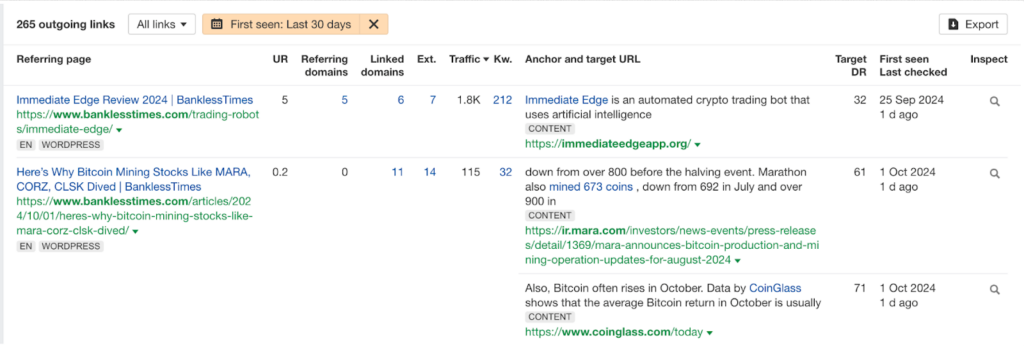
Even if we divide the 265 outgoing dofollow links we found for banklesstimes. com by 2, we’ll still end up with around 130 links sold each month, priced at $100 to $150 each (at least from what we’ve seen). Allegedly, this brings the link farm over $15K a month. And over a year? That’s an average of $150K — pretty massive for just selling backlinks!
Risks Of Selling Backlinks
At first glance, selling links seems easy — just avoid passing PageRank and cash in! But it’s not that simple. Sure, you could quickly create a webpage for selling links, but if you're looking for sustainable revenue, it’s wiser to launch your own link-building agency.
Both options come with their own drawbacks. For example, if you create websites that sell backlinks, don’t expect long-lasting results without some investment. To keep things running smoothly, boost traffic, and improve your DR, you'll need to constantly redesign the site to make it more appealing, optimize it better, improve navigation, and so on.
When you launch a link-building service to sell links, be prepared to multiply your investments by five. You’ll need to spend big on professional staff, link-building and marketing tools, ads, client acquisition, retention, and so much more!
But is the investment really worth it? Chasing big bucks can lead to failure too! For example, I recently researched the viability of several link farms, and here’s what I found:
- Paid Sites (June 2023): 44,276.
- Paid Sites with 200 Server Responses (April 2024): 31,388.
- Paid Sites with 3XX, 4XX, 5XX Server Responses: 12,888.
It turns out that in a year's time after launching, 29% of the paid websites I researched were non-viable or simply DEAD. Sounds like the link-selling business didn’t end well for some…
In this context, I can also recall the example of a former major link-selling site — startup. info. For years, it was hustling hundreds of thousands of dollars selling backlinks. But guess what? After an algorithm update in February 2024, Google hit the site with penalties, and now it kicked the bucket. Take a look!
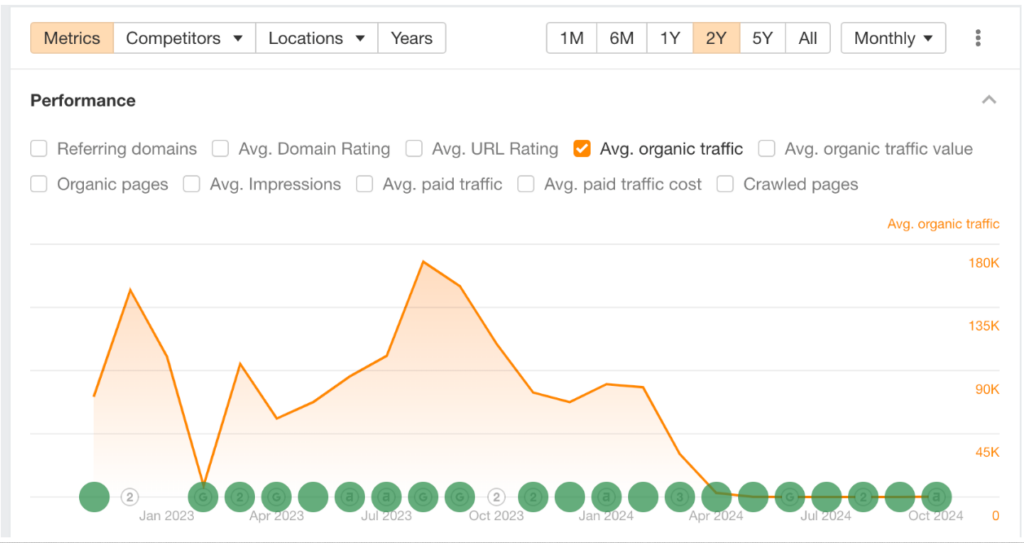
What’s the takeaway? Even the slightest algorithm change can wipe out a once-thriving link-selling site, leaving you with nothing. Selling links in bulk? Way too risky.
Final Words
While selling links can be ethically debated, one thing’s clear: everyone’s after quality links, so the demand will always be high. In fact, our survey backs this up — 92% of SEO experts believe their competitors are buying links.
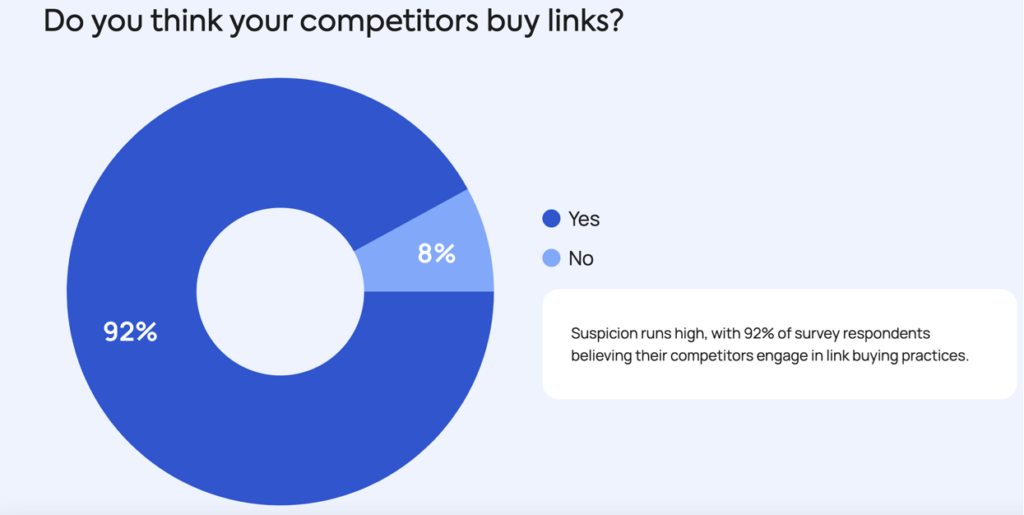
Interestingly, Google itself leaves certain loopholes for selling links, but it’s essential to approach this carefully. Always keep Page Rank requirements in mind and maintain a non-manipulative linking strategy.
And if you're in the market to buy links rather than sell, Editorial.Link is ready to meet your needs!

